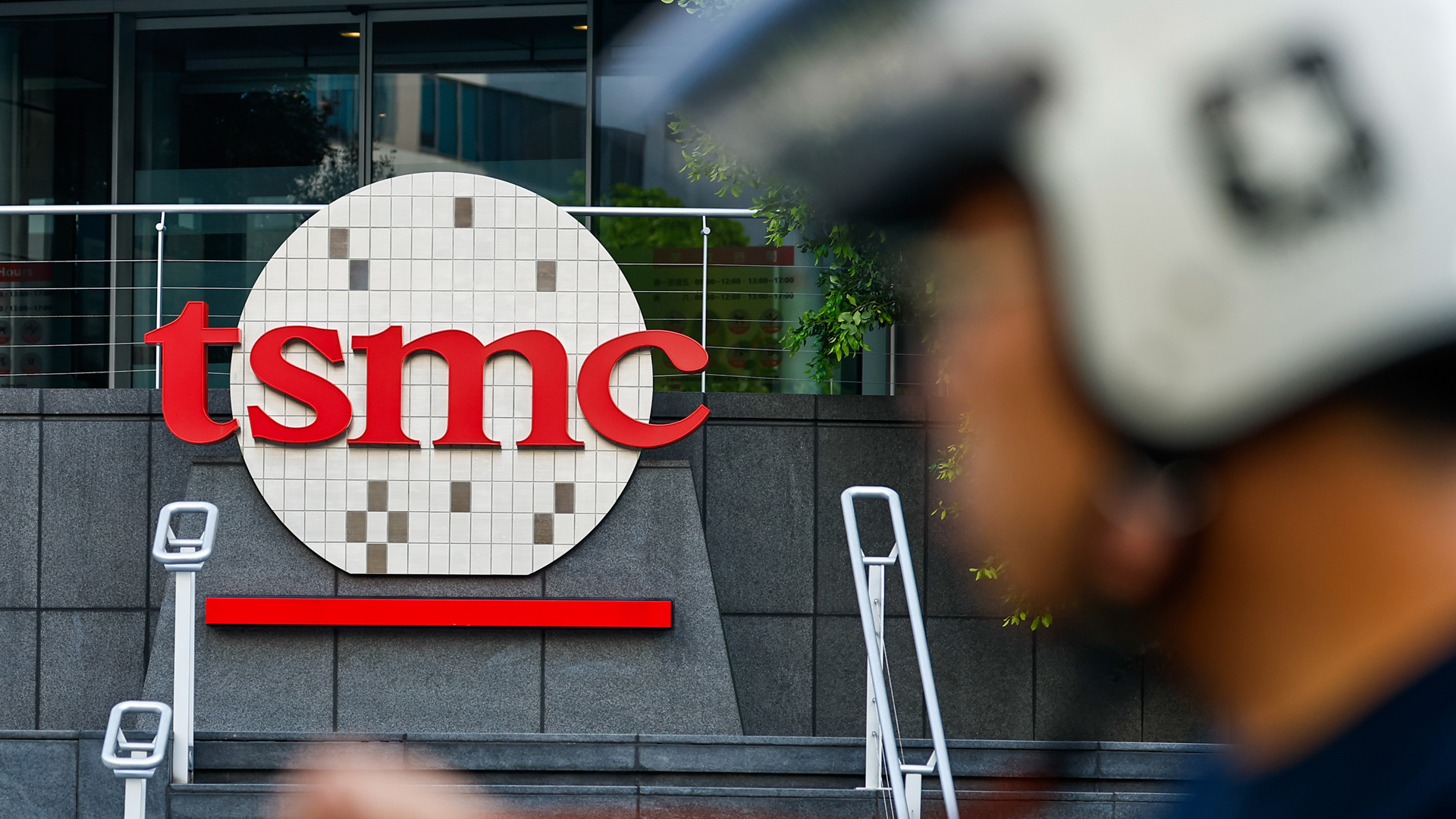TSMC employees arrested, could face up to 12 years in jail, $3 million fine over alleged attempt to leak 2nm chip details — first case under Taiwan's amended National Security Act cites 'serious suspicions of violating national security laws'
They stand accused of trying to leak cutting-edge 2nm-scale silicon secrets to rivals.

Two employees of major semiconductor manufacturer and design company TSMC, as well as one former employee, have been arrested over claims they stole proprietary technology, according to the Financial Times. This is the first trade secrets case to be filed under Taiwan's new national security law, which is designed to clamp down on the sale and theft of trade secrets of "national core technologies," from the country's hugely important chip design sector.
Taiwan is home to much of the world's chip design and fabrication infrastructure, headed by TSMC's cutting-edge facilities and intellectual property. In recent years, it has leapt ahead of traditional rivals Samsung and Intel and now produces most of the world's most advanced silicon. That makes it a key target for IP theft, however, and over the years, TSMC has struggled with engineers defecting to competitors and taking trade secrets with them.
To that end, Taiwan amended the National Security Act in 2022 to include specific charges for economic espionage related to national defence, aerospace, agriculture, semiconductors, and information security. It's this law that the pair of engineers and a third suspect have been caught by. While FT reports that two of the trio are former employees, Reuters reports that of the three who have been detained, two are current staff members, while one is a former employee. Confusion could stem from the fact that TSMC has fired the workers involved. According to Bloomberg, the number of people arrested could be as high as six. The Taiwan High Prosecutors Office website is currently offline, lending to the confusion.
TSMC allegedly discovered the leaks as part of its own internal auditing, before it forwarded the complaint to the authorities. THIP has since conducted a robust investigation, questioning a number of suspects and witnesses, and searching their residences and places of work. That includes a seemingly unaffiliated Japanese chip tool maker, Tokyo Electron.
The suspects were arrested on “serious suspicions of violating national security laws." It's alleged that they were attempting to leak details on TSMC's cutting-edge 2nm chip development, which puts them well within the sights of the National Security Act, which has specific restrictions on the leaking of semiconductor technology at the sub-14nm scale.
Smaller process nodes offer greater efficiency and performance, as they allow the packing of more transistors into the same physical footprint. However, the smaller you go, the harder manufacturing becomes, which is why there's such an economic arms race to produce the most compact silicon wafers possible. TSMC is at the forefront, with Chinese firms Huawei Technologies Co. and Semiconductor Manufacturing International now beginning to fabricate silicon at around 7nm. Samsung and Intel are much closer, but they don't have anywhere near the reputation or customer bases of TSMC, which produces some 90% of the world's most advanced silicon.
TSMC couldn't be drawn to discuss the case further, but stated that: “We will continue to strengthen our internal management and monitoring systems and will work closely with relevant regulatory authorities as necessary to protect our competitive advantage and operational stability.”
Get Tom's Hardware's best news and in-depth reviews, straight to your inbox.
Punishments for transgressions under the amended National Security Act can include up to 12 years in jail, as well as a fine of up to NT$100 million (over $3.3 million U.S.).
Follow Tom's Hardware on Google News to get our up-to-date news, analysis, and reviews in your feeds. Make sure to click the Follow button.

Jon Martindale is a contributing writer for Tom's Hardware. For the past 20 years, he's been writing about PC components, emerging technologies, and the latest software advances. His deep and broad journalistic experience gives him unique insights into the most exciting technology trends of today and tomorrow.
-
Marlin1975 I hate theft... but if more tech like this was more common it would help more people. It be at the cost of "profits" for the company that was first but even the most capitalist person has to admit whats best for people is not best for profits.Reply
I still dislike intel for example. But if they disappear cost will go up and innovation may drop more. -
rluker5 Hasn't 18A already entered risk production, so isn't TSMC 2nm technically a trailing node?Reply -
Elusive Ruse Reply
Your problematic logic of theft is good as long as it benefits me notwithstanding; such technology would not end up in the hands of those who would help the regular man. The highest bidder on the black market for such intellectual property would be the you know who, and them guys don’t have altruistic intentions.Marlin1975 said:I hate theft... but if more tech like this was more common it would help more people. It be at the cost of "profits" for the company that was first but even the most capitalist person has to admit whats best for people is not best for profits.
I still dislike intel for example. But if they disappear cost will go up and innovation may drop more. -
call101010 Reply
I dont remember anyone was paid for the wheel invention ... Knowledge should be for free ... it is accumulation of human knowledge built upon each other.Elusive Ruse said:Your problematic logic of theft is good as long as it benefits me notwithstanding; such technology would not end up in the hands of those who would help the regular man. The highest bidder on the black market for such intellectual property would be the you know who, and them guys don’t have altruistic intentions.
Patent for sure slows down science and development.
More over , only rich people can patent their ideas -
spongiemaster Reply
When it costs billions to develop said knowledge, it is beyond ridiculous to expect anyone to give it away for free without at the very least recouping their investment. You know what really slows down science and development? No prospects for a positive financial return.call101010 said:Knowledge should be for free ... -
spongiemaster Reply
What would anyone do with tech "like this?" If all the relevant information was published on the internet, it's not like we're going to see people building functional 2nm fabs in their basement. There are very few entities with the financial resources to make use of this technology. Even with the money, you'd still need a large team of highly skilled engineers that probably aren't sitting around looking for a job.Marlin1975 said:I hate theft... but if more tech like this was more common it would help more people. It be at the cost of "profits" for the company that was first but even the most capitalist person has to admit whats best for people is not best for profits.
I still dislike intel for example. But if they disappear cost will go up and innovation may drop more. -
umeng2002_2 To be honest TSMC being relevant is a national security issue for them. Most of wall street now depends on them.Reply -
Li Ken-un Replycall101010 said:Patent for sure slows down science and development.
Why not both?spongiemaster said:You know what really slows down science and development? No prospects for a positive financial return.
Patents with reasonable exclusivity periods would:
Promote innovation by guaranteeing a monopoly or protecting revenue streams. (Whether or not the investment into R & D is actually recouped depends on execution and the market.)
Contribute to the progress of society by preventing an indefinite monopoly on an innovation. -
magbarn Reply
This is why we have tons of new "weight loss drugs" and no new antibiotics. There's much more money to be made on temporary weight loss than curing infections resistant to multiple conventional antibiotics.spongiemaster said:When it costs billions to develop said knowledge, it is beyond ridiculous to expect anyone to give it away for free without at the very least recouping their investment. You know what really slows down science and development? No prospects for a positive financial return. -
spongiemaster Reply
Obesity is one of the most expensive conditions for the US medical field to treat. Back in 2016, it was estimated to have cost the industry $260 billion. That's more than anything besides heart conditions and we all know many heart conditions are caused directly by obesity, so even that comes with an asterisk. Americans aren't going to start exercising and eating healthy any time soon even though 73.6% of adults are overweight or obese. What infection is currently adversely affecting the health of 3/4's of the American adult population? By comparison, about 40% of Americans will get cancer during their lifetime. That's what makes the weight loss drugs so prevalent in the industry.magbarn said:This is why we have tons of new "weight loss drugs" and no new antibiotics. There's much more money to be made on temporary weight loss than curing infections resistant to multiple conventional antibiotics.